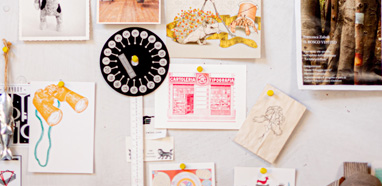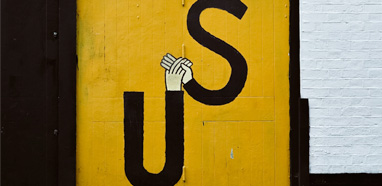Like a conversation I avoid to initiate, this post was on hold for quite some time now. It felt that the bigger the social issues rising in the world, the less adequate the words I could find to talk about things. Getting a bit personal and more vulnerable than usual, I felt that my opinions are small and insignificant.
First the pandemic crisis. Does the world need one more article with do’s and don’ts about working from home? How do I share helpful, positive thoughts about living intentionally without sounding misguidedly optimistic? In a world that is still fighting a virus, which caused the loss of so many people’s lives, and impacted our economy, our culture and our lives in such an unpredictable way.
And then the burst of outrage that George Floyd’s death initiated. Who am I to talk about the social injustice that POC experience every single day? How do I contribute with ideas and resources without sounding condescending or simply whitesplaining?
Not sure how to handle this, I switched to my introverted self. Being an advocate of taking action and moving towards improvement, it felt weird that all I wanted to do was to stay still and silent.
The more I thought about this the more I realized that first I need to find resilience with my feelings of guilt and numbness.
Guilty of my ignorance. Guilty of my privilege. Guilty of my incapability to be part of the solution. Numb because I honestly feel so small and helpless when basic human rights aren’t obvious and universal.
I made it my priority to educate myself about the history of systemic racism. So I started reading books and searching material online. Absorbing all the valuable information out there, educating myself, trying to understand.
Participating in several public discussions helped me reflect on how we communicate these issues and these are some learnings I’d like to share with you.
Pop the bubble
I realized that I am in a social media bubble. The last couple of years I managed to eliminate all the annoying voices and I could finally spend my online time reading opinions that make sense to me. Being a member of several feminist and LGBTQIA+ rights communities online, I shaped a feed that contained so much knowledge and input on those matters that I strongly support. These voices were also very active in the #blacklivesmatter conversation and this is where I caught myself showing zero tolerance to any different opinion. I’d switch to a state of anger and react accordingly. When people got too defensive or too radical, I’d block them and move on.
In some way this attitude is healthy. I spent far too many years of my life playing the role of the good girl. Pursuing to be pleasant, not hurting anyone with my opinions. Not having an opinion actually worked even better. The way girls are often taught to sit still and look nice, instead of participating in the discussion.
What’s negative with this attitude is that I might end up interacting only with people that think like I do.
We need safe places on the internet, where people can eliminate the noise and feel free to express themselves. But we also need to remember that this part of the world we create in our feed is not representative of what is out there. It feels like it’s the majority, but it’s not. It’s more like our personal wannabe reality. It’s our bubble. This “controlled” environment can lead to ignorance of what happens in the real world in the long term and shape our own intellect in a particularly limited way.
I still don’t believe we should discuss with everyone, nor that every opinion deserves to be heard. I don’t tolerate hate speech. But I need to be aware of it. The input of different people should not be neglected. We are connected. Together we form communities, we build systems and societies. We need each other to change things.
It’s ok to change your mind
And this brings me to my next learning. I realized that my incapability to share my opinions on the issue of #blacklivesmatter publicly came from my fear to take a misstep. What if I say the wrong thing? The more serious the topic, the bigger the mistake, the more careful I should be with what I say and do.
We tend to link people to the ideas and the thoughts they have expressed at one point in time. However, like everything in nature, people are evolving, changing creatures that could and should change points of views.
By all means, our opinions are important, we should be thoughtful when we communicate them. We should be accountable for them. Choosing the right words, considering political correctness, being careful not to hurt others.
Observing public online conversations, I get the impression that people disapprove when someone changes their mind, when it’s actually a sign that someone has been listening.
In my own trajectory, there were times where I had to change my mentality. I rebuilt many parts of my thinking and I’m working on it constantly.
This doesn’t come easily. I remember many years ago how a friend’s reaction to something I said, made me realize how wrong my statement was. She looked at me with a cringe. When I think about it I feel ashamed, I feel that I was an idiot ignorant. And I was. But I also feel good that I paid attention. I feel good that I won’t express such a statement again. This friend is still there, accepting and loving, which makes me think that she didn’t put a label on me. She gave me the space I needed to evolve. But most people don’t do that. They are often intolerant to change and see it as a sign of weakness. They feel they need to stay in their position to be taken seriously and this is how they judge others as well.
The older I get the more I realize that we don’t only have to learn new things to reach a better understanding, but we need to unlearn a lot. Reaching a higher level of self reflection for me means to deconstruct my system of thoughts by deduction. Removing limiting thoughts, getting rid of ideas that don’t serve me anymore. Creating space for new, updated beliefs.
And to get there we need to be able to allow ourselves to change. To feel comfortable to say “I was wrong”. To quote the famous saying from Maya Angelou:
I did then what I knew how to do. Now that I know better, I do better.
Privilege
We all have privileges. Acknowledging our own privilege is the first step to understand any issue that doesn’t affect us. Letting go off the naive and simplistic mindset “never happened to me, apparently it doesn’t happen” and diving into a deeper awareness of what the other person experiences. Grasping the different upbringing, the different social standards, the different opportunities we had in life.
If we want to contribute to social change, we need to take a deep look inside and see how we personally benefit from every situation.
How we are gaining something from a situation that causes from discomfort to huge tragedies to others. In other words, it’s time to let go of our privilege. Giving up privilege, doesn’t mean that we will hand it over to someone else, and we’ll become the victims of a situation. It means that we will stop ignoring the injustice and that our actions will be aligned with this mindset of fairness and equality. Being aware of our privilege should not make us feel guilty. These are the advantages we were given and we should use them to advocate for the less privileged. To be actively helpful.
For example instead of buying those cheap jeans that some underpaid, underaged worker sewed in unsafe working conditions, we can spend a bit more and choose to buy ethically. It’s more expensive, true. But this is the real price of those jeans anyway.
Empathy
Discussions about important issues bring so many feelings to the surface. Guilt, frustration, sadness, fear and a lot of anger. Not the most empowering emotions. Engaging in conversations from a state of anger can be a bad place to start. Anger is a valid emotion, it shouldn’t be suppressed. It takes however good communication skills to channel it right. Anger can make others defensive, as they feel attacked and judged.
By sharing our thoughts from a state of compassion and kindness, we give them space to open up.
Compassion creates space for dialogue, allows us to connect even when we disagree. Especially in times of crisis, we can’t possibly know what others are going through. Let’s engage in conversations aiming to truly understand each other, instead of imposing our beliefs on them.
Talking about social issues or simply interacting with people in times of crisis can be tricky. Letting go of “being right” or “getting it right” is a good way to start. True human connection, more listening and less talking. After all, progress can only be possible when we are also willing to change and learn from each other.
Are you also feeling ashamed to change your mind? Do you feel you sound less serious or committed to your values when you do so? Click here to share your thoughts!


